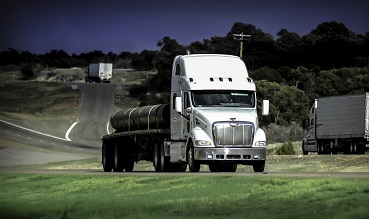 If you’re an owner operator, you will have different insurance requirements than owners of large trucking companies. You will bear the brunt of any liability responsibilities as opposed to an employer when you’re an independent owner operator, which means it’s your responsibility to carry the right insurance to protect yourself and your truck.
If you’re an owner operator, you will have different insurance requirements than owners of large trucking companies. You will bear the brunt of any liability responsibilities as opposed to an employer when you’re an independent owner operator, which means it’s your responsibility to carry the right insurance to protect yourself and your truck.
So what type of insurance do you need as an independent truck driver?
First, it’s important to check with your state’s requirements. Every state has certain laws regarding trucking insurance which set limits on the least amount of coverage each driver must carry. In Georgia, for example, intrastate truckers must carry:
• $100,000 in bodily injury liability per person
• $300,000 in bodily injury liability per accident
These requirements may also vary depending on the size and weight of the truck, the cargo you carry and the distance you intend to travel. Trucks that transport hazardous materials require more coverage and thus cost more to insure. Trucks carrying oil in Georgia are required to carry $1 million in liability insurance while vehicles traveling out of state may need between $750,000 to $1 million depending on its size and cargo.
Liability insurance doesn’t cover everything. You will also want coverage for damages to your vehicle, your personal injuries and any injuries to your passengers. Keep in mind that personal auto insurance won’t cover you when using a vehicle for work purposes.
Owner operators should also consider carrying:
• Comprehensive Coverage: Comprehensive coverage covers damage to your truck caused by fire, wind, hail, theft, vandalism and other incidents unrelated to collisions.
• Collision Coverage: Collision coverage covers damage to your truck caused by a collision with another vehicle or object.
• Property Damage Liability: Property damage liability compensates victims if you cause property damage while operating the insured truck.
• Uninsured/Underinsured Motorist Coverage: Uninsured/underinsured motorist coverage provides compensation for damages caused by a collision with a driver who isn’t carrying adequate car insurance.
• Personal Injury Protection: Personal injury protection, or PIP, covers your and your passengers’ medical expenses after an accident, no matter who caused the accident.
• Non-Trucking Coverage: When you are not operating the vehicle or actively transporting cargo, non-trucking coverage will provide compensation for damages.
• Bobtail Insurance: If you are lot carrying a trailer, bobtail insurance provides compensation for damages caused to the bobtail behind your truck.
• Cargo Insurance: Cargo insurance is crucial for all truckers transporting items, equipment or other types of physical cargo. It provides compensation for loss or damage due to an accident, fire, theft, wind, hail and more.
The amount of coverage you need depends on your personal needs and the cargo you are transporting. Trucks carrying people, such as taxis and buses, will need large limits on bodily injury liability and personal injury protection. Truckers that continuously transport cargo will need higher limits of cargo insurance and comprehensive coverage.
How Much is Trucking Insurance for Independent Truckers?
If you own a single truck, you will likely pay between $8,000 to $12,000 a year. This price varies depending on a variety of factors, such as:
• Location
• Vehicle type, weight and value
• Claims history
• Credit score
• Driving record
• Coverage limits
• Deductible
You can choose a higher deductible in order to lower your monthly premiums, but this also means that you will pay more when it comes time to file a claim. Trucking insurance can be expensive for owner operators, so make sure to look for qualifying discounts and attempt to raise your credit score in order to save money. While trucking insurance can be pricey, it’s well worth protecting your truck and your assets.